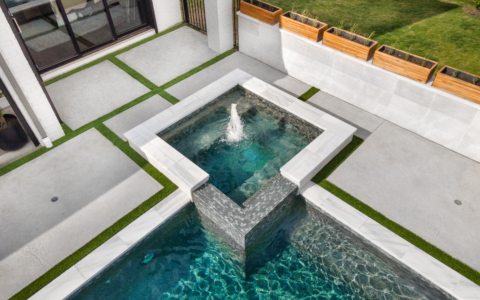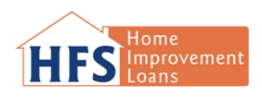Pool Financing in Plano, Dallas & McKinney, TX
At Riverbend Sandler, we understand that a swimming pool can be a big investment.
While building custom pools and spas is a great way to transform your backyard, they are not inexpensive purchases and it can help to have financial support when going through the process.
At Riverbend Sandler, we’ve spent decades forging relationships with some of the best financial institutions in the industry, ensuring our clients have access to unrivaled advice and funding options.
We won’t take a one-size-fits-all approach – instead, we make sure that you’re always recommended the best and most competitive rates for your family and circumstances.
Recommended lenders
Some of the lenders we work alongside include:
All of the above have a proven track record of achieving financial results for our clients, and we can also work with a financial institution of your choice if you prefer.
If you’re based in Plano, Dallas, McKinney or the North Texas area, contact Riverbend Sandler today to find out more about the financing options available for your next pool project.

General
What areas do you cover?We cover a wide region of North Texas including Dallas, Prosper, Plano, and McKinney. To see a full map of the areas we cover, please check out our Areas Covered page. If you’re still not sure if we can serve your location, just speak to our team.
Here at Riverbend Sandler Pools, we provide a full range of pool services spanning installation all the way to aftercare. Our full range of services includes building custom pools and spas, pool remodeling, pool equipment repairs, weekly pool cleaning service, and winterizing services. We can also support you with sourcing financing and permits to really take the stress out of the process.
We do not sell spare parts or chemicals, but as part of our ongoing maintenance services, we will ensure you have everything you need to operate your pool effectively.
Every pool design is different, so the pool build will also vary. Most pool and spa builds take on average 12-14 weeks, but the complexity of the project and weather conditions will also need to be factored in.
Projects that require engineering or contain structures can take longer. Your builder will provide you with an estimated timeline after you’ve signed the contract.
Maintenance & Repairs
What should I do if there is a power outage in freezing weather?As mentioned above, most swimming pools include a freeze protection mechanism that is triggered automatically when the temperature reaches the near-freezing temperature of 32°F.
Unfortunately, during a power outage the freeze protection will not activate. When this occurs, it’s essential to winterize your pool equipment to ensure it doesn’t become damaged.
To do this, watch our video or view our PDF which will outline how to effectively winterize your pool and equipment.
The filter should be backwashed every four to six weeks or when the pressure increases 8 -10 lbs over normal clean filter pressure. The filter should also be completely disassembled, inspected, and cleaned every six months to ensure proper filtration.
As part of our maintenance service, we will backwash your filter as described above. Filter cleaning can be done at an extra charge through our customer care program.
If you notice that your pump is leaking, it’s vital that you contact our service department as soon as possible.
Check your water level is full. This is the case when the water is halfway up the skimmer mouth or below the overflow gate.
If the water level is low, it can cause the system to pull in air and push it through the system and into the pool, creating bubbles.
If your water level is correct, then the problem might be caused by your skimmer doors not being pulled into the water. If one or both of the skimmer doors are not being pulled in with the flow of water, it can cause large amounts of water to enter the system which means bubbles may appear.
If air bubbles persist, turn off the pump, close suction valves (skimmers one, two and the main drain), remove the pump lid, and clear any debris.
If you’re still experiencing air bubbles, it’s time to call a technician.
If your pool pump is not working, first check the breaker panel in your pool control panel to see if the breaker has been tripped. The breaker is labeled ‘filter’ and if it has been tripped, it will be in the middle position.
If this is the case, push the breaker completely into the ‘off’ position. Then, push it into the ‘on’ position. Also check the system to ensure the pump is turned on.
If the pump turns on then it means the trip was what caused the issue – however, if it does not, then it means there is a different problem and you’ll need to call our office to dispatch a technician.
New Pools & Renovation
Why choose Riverbend Sandler as your pool provider?When you choose Riverbend Sandler, you’re choosing an all-in-one pool partner who is here for you at every stage of pool ownership. Whether you take the full journey with us or require only a few services, we provide custom swimming pool construction, renovation of old pools, repair work, weekly pool cleaning and maintenance, leak detection, and winterization. We also supply a range of outdoor living products to add the finishing touch to your backyard sanctuary.
You normally require a permit for a new pool. Always check with your local authority about whether you need a pool permit and what information you will need to give. If you need any support with applying, just ask our team.
We do provide warranties for pools and equipment, but please check with our team for the precise details for your particular pool.
Here at Riverbend Sandler Pools, we’re here to make things easy for you. We understand that sometimes with a larger expense, you need a little support. That’s why we can help set you up with a pool financing option that works for you, using the many strong relationships we’ve forged with lenders throughout the years.
From the time you sign a contract, allow at least 30 days for HOA approval if required before we can begin. City jobs can also add on time at the front end due to permitting reviews and during the process for inspections required at certain phases of construction.
Any reputable builder will provide you with a written warranty; make sure you review the warranty section and do not accept anything verbally. A new swimming pool is a huge investment, so do not be afraid to ask questions for clarification.
The cost of swimming pools varies depending on a variety of factors, including size, depth, utility runs, materials, access for excavation, your yard’s elevation and slope, and even the location of your house as this can impact permit costs.
All of the pools we build are fully customized meaning costs will differ. On average, a pool can range from $60K to over $1 million.
Servicing
Can you service my pool if I’m not home?Yes! Our pool service is all about convenience, so we work to your schedule. If you’re going to be out then simply make arrangements with our team and we’ll work on your pool even if you’re not at home.
You can expect some water loss due to evaporation and splash out during swimming. The evaporation rate varies due to several factors, including the season, the area in which you live, and the amount of time you run your water features.
If you suspect that your pool is losing an above-average amount of water, check all plumbing and equipment for leaks, inspect the backwash line for the water bypassing valve, and inspect the interior of the pool for cracks.
You should also contact our service department to schedule a service call to check for visual leaks on equipment as part of our leak detection services. Alternatively, you can contact the structural warranty department for non-visual leaks to discuss possible scenarios.
Most swimming pools include a freeze protection mechanism that activates when the temperature reaches the near-freezing temperature of 32°F. Your freeze guard keeps your pool running to help prevent damage to your pool and/or equipment. If the freeze guard does not activate and/or you lose power, then please see the FAQ on power outages in freezing weather.
Every pool system has different pressure restrictions depending on the type of equipment and features that were built with your pool. New pool owners will be given the normal pressure for their system with their start-up instructions.
The amount of time required to run your pool system and pump will depend on the time of year and your pool conditions. For example, in the spring and summer months when your pool is likely to be used more, we’d recommend running it for eight to ten hours a day.
However, in the fall and winter, we’d recommend doing this for four to six hours a day.




